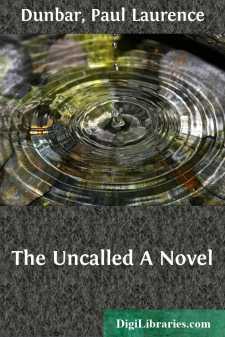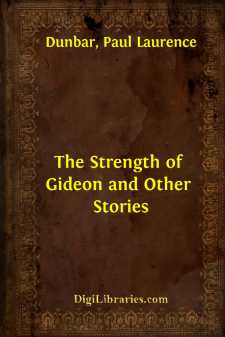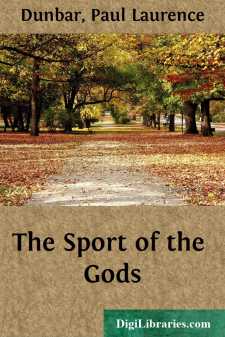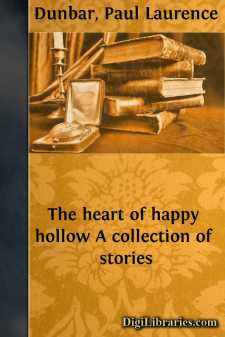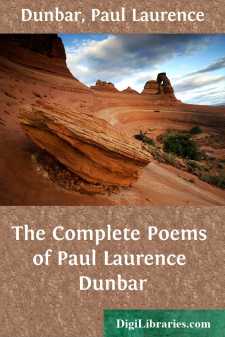Categories
- Antiques & Collectibles 13
- Architecture 36
- Art 48
- Bibles 22
- Biography & Autobiography 813
- Body, Mind & Spirit 142
- Business & Economics 28
- Children's Books 17
- Children's Fiction 14
- Computers 4
- Cooking 94
- Crafts & Hobbies 4
- Drama 346
- Education 46
- Family & Relationships 57
- Fiction 11829
- Games 19
- Gardening 17
- Health & Fitness 34
- History 1377
- House & Home 1
- Humor 147
- Juvenile Fiction 1873
- Juvenile Nonfiction 202
- Language Arts & Disciplines 88
- Law 16
- Literary Collections 686
- Literary Criticism 179
- Mathematics 13
- Medical 41
- Music 40
- Nature 179
- Non-Classifiable 1768
- Performing Arts 7
- Periodicals 1453
- Philosophy 64
- Photography 2
- Poetry 896
- Political Science 203
- Psychology 42
- Reference 154
- Religion 513
- Science 126
- Self-Help 84
- Social Science 81
- Sports & Recreation 34
- Study Aids 3
- Technology & Engineering 59
- Transportation 23
- Travel 463
- True Crime 29
Paul Laurence Dunbar
Paul Laurence Dunbar (1872–1906) was a pioneering African American poet, novelist, and playwright who gained national recognition for his work during the late 19th and early 20th centuries. He was known for his use of both standard English and dialect in his poetry, capturing the diverse experiences of African Americans in post-Civil War America. Dunbar's works, such as his poetry collections "Majors and Minors" and "Lyrics of Lowly Life", have had a lasting impact on American literature, influencing future generations of writers and poets.
Author's Books:
Sort by:
CHAPTER I It was about six o'clock of a winter's morning. In the eastern sky faint streaks of grey had come and were succeeded by flashes of red, crimson-cloaked heralds of the coming day. It had snowed the day before, but a warm wind had sprung up during the night, and the snow had partially melted, leaving the earth showing through in ugly patches of yellow clay and sooty mud. Half...
more...
THE STRENGTHOF GIDEON THE STRENGTH OF GIDEON Old Mam' Henry, and her word may be taken, said that it was "De powerfulles' sehmont she ever had hyeahd in all huh bo'n days." That was saying a good deal, for the old woman had lived many years on the Stone place and had heard many sermons from preachers, white and black. She was a judge, too. It really must have been a powerful...
more...
THE HAMILTONS Fiction has said so much in regret of the old days when there were plantations and overseers and masters and slaves, that it was good to come upon such a household as Berry Hamilton's, if for no other reason than that it afforded a relief from the monotony of tiresome iteration. The little cottage in which he lived with his wife, Fannie, who was housekeeper to the Oakleys, and his...
more...
The law is usually supposed to be a stern mistress, not to be lightly wooed, and yielding only to the most ardent pursuit. But even law, like love, sits more easily on some natures than on others. This was the case with Mr. Robinson Asbury. Mr. Asbury had started life as a bootblack in the growing town of Cadgers. From this he had risen one step and become porter and messenger in a barber-shop. This...
more...
I think I should scarcely trouble the reader with a special appeal in behalf of this book, if it had not specially appealed to me for reasons apart from the author's race, origin, and condition. The world is too old now, and I find myself too much of its mood, to care for the work of a poet because he is black, because his father and mother were slaves, because he was, before and after he began to...
more...


